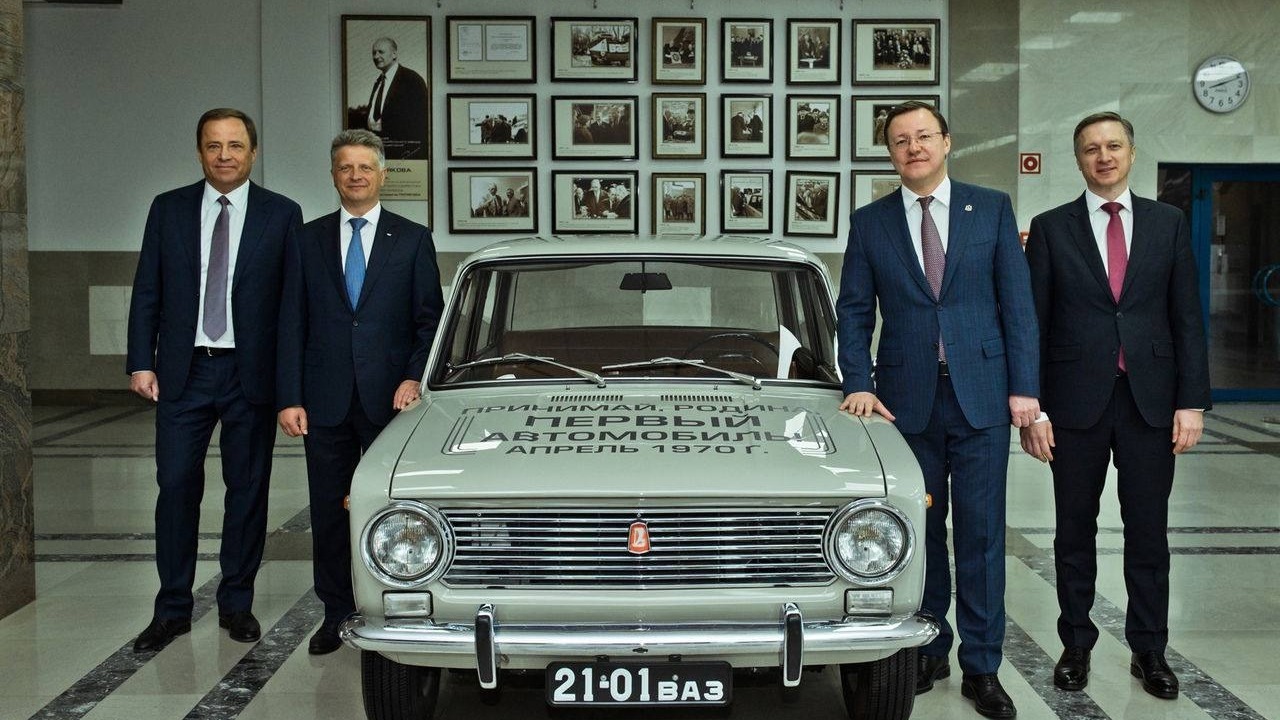Posted 26 июня 2023, 14:59
Published 26 июня 2023, 14:59
Modified 27 июня 2023, 08:19
Updated 27 июня 2023, 08:19

It is expensive and there is no choice: the head of AvtoVAZ announced options for supporting the automotive industry
AvtoVAZ offered to support the Russian car industry at the expense of the buyers' wallet
Maria Sokolova
The meeting of the Union of Machine Builders of Russia on the results of the first half of 2023 was held in the usual way for official events: the participants told what successes they had achieved, what components they had managed to replace with imports. Everything is standard, but the president of AvtoVAZ Maxim Sokolov made a small but very important remark — he announced a list of state support measures for the automotive industry. We are talking about indexing the recycling fee, improving the legislation on public procurement and amending the legislation on taxis.
Recycling fee for cars
Scrap collection has been paid by importers of foreign cars since 2012, and by domestic manufacturers since 2014. The base rate of scrap collection is 20 thousand rubles, and then the amount is overtaken by increased coefficients. So, for the most popular cars with an engine volume from 1 liter to 2 liters, you have to pay 178.4 thousand rubles.
Initially, the scrap collection was introduced as a replacement for import duties, which had to be reduced due to Russia's accession to the WTO, so the scrap collection was returned to domestic manufacturers in the form of subsidies. But in 2019, new rules were adopted, according to which the guaranteed refund amount gradually decreased, and last year it reached 0%. Now you can only get a refund with a high level of localization.
So at present, no one can count on a full refund. Last year, the Ministry of Industry and Trade published the degree of localization of the most popular cars: even the most «domestic» of all — Lada Granta scored 4621 points out of 8800 possible, Lada Niva, which has been produced since 1977, scored 4156 points. Probably, the degree of localization has increased after the introduction of sanctions. But to replace most of the missing imported components came others — from China.
«Indexing», meanwhile, can be very immodest. Maxim Sokolov in January 2023 proposed to increase the scrap collection from 178.4 thousand rubles to 300 thousand rubles. First of all, this measure will affect Chinese automakers who either import into Russia has fully finished machines, or they are engaged in large-node assembly.
The Chinese are pressing hard on the Lada: the revived Vesta after restyling costs from 1.24 million to 1.69 million rubles. Plus, we must not forget about dealer cheating. This is the price without side airbags, without stabilization system, without climate control, without automatic transmission. Although all these options are offered by Chinese manufacturers right now.
For this money, you can take a BAIC U5 Plus sedan or a Changan CS35 Plus crossover, a Chery Tiggo 4 or Haval Jolion in a simple configuration, a JAC J7 liftback, one of the versions of which should turn into a Moskvich 6, assembled in Kaliningrad on the Kaiyi E5 Avtotor.
Now there are still alternatives to native domestic cars. But after the increase in scrap collection, all of them will rise in price, including those collected in Russia by pasting the nameplates «Muscovites» and «Evolutes».
Public procurement and taxi
And to make sure that buyers do not go anywhere, it is proposed to introduce restrictions on the degree of localization in the case of deliveries of cars within the framework of public procurement, for taxi companies and rental parks — carsharing.
Now commercial structures, for which a car is a business, prefer new imported cars. In taxi and carsharing, Chery Tiggo 7 and Tiggo 4, JAC JS6 and J7, Geely Coolray, brought from China, have become popular. The only exception is Haval Jolion, which is assembled at the Tula plant and Moskvich 3 is still with near—zero localization. «Frets» at work in megacities are practically not found.
Taxi companies and carsharing companies will have almost no choice. If they make requirements for the level of localization, they will have to buy either Haval Jolion, according to which the degree of localization in 2023 should reach 50%, or Lada Vesta, which next year should enter the market with an automatic transmission. All other cars are either not localized (the transfer of Chinese cars under Russian brands to domestic components takes more than one year), or they do not have an «automatic machine», without which they will not take either a carsharing or a taxi.
The compression of the commercial procurement market threatens with a shortage of cars, and at the same time with an increase in prices, both for the cars themselves and for transportation. Since September of this year, taxi services can become more expensive many times due to the lack of licensed drivers and inhumane CTP tariffs for taxi drivers — up to 160 thousand rubles a year. If the remaining drivers are still deprived of the choice of cars, obliging them to buy only one of the two models, then the entire taxi market will shrink to elite transportation at the maximum tariff. Carsharing also has the potential for a multiple increase in tariffs.
Ordinary mortals will remain traditional public transport and scooters, which are not yet produced in Of Russia. But let's be optimistic: such reforms have a big plus. Traffic jams will resolve on the roads of megacities, and the air will become cleaner.